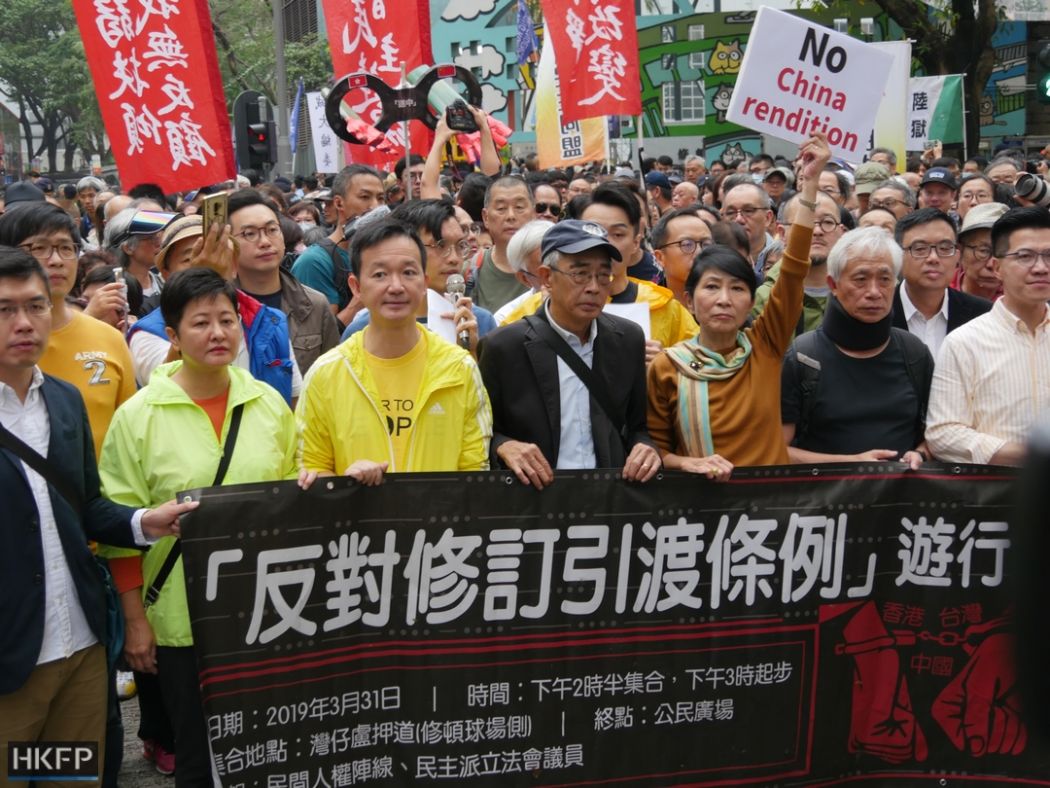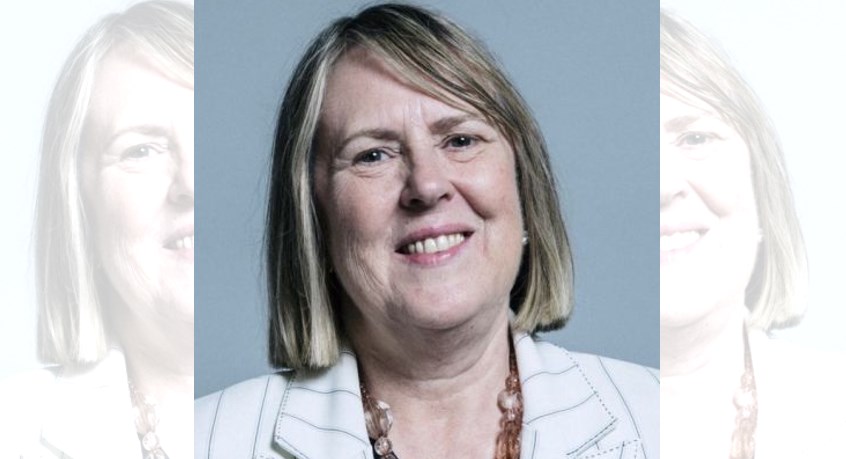Fourteen British politicians have urged their government to consider whether proposals to amend Hong Kong’s extradition laws will have implications for existing rendition agreements between the two administrations.
In a joint parliamentary motion tabled on March 29, a cross-party group of MPs said they were concerned that the proposed law could facilitate the extradition of pro-democracy activists, journalists, dissidents and foreign nations – including business leaders – to China. They cited a statement from the American Chamber of Commerce last month which said the business community was concerned about the effect of the amendments on the city’s status as an international financial hub.

Hong Kong has negotiated bilateral extradition agreements with jurisdictions around the world. However, last month, the government proposed updating the Fugitive Offenders Ordinance and the Mutual Legal Assistance in Criminal Matters Ordinance to roll out a case-by-case system that would bypass such a process. The new system would allow the city to handle extradition requests from jurisdictions where there were no pre-existing deals – most notably mainland China and Taiwan. The bill arrived at the legislature for debate last Wednesday.
Hong Kong already has mutual extradition agreements with 20 jurisdictions – such as the United States, the United Kingdom and Australia.
‘One and a Half Systems’
The motion follows a House of Commons Foreign Affairs Committee report entitled “China and the Rules-Based International System,” released last Thursday, which expressed concern over threats to Hong Kong autonomy. It gave particular focus to the rule of law: “[W]e fear that Hong Kong is in reality moving towards ‘One Country, One and a Half Systems.’ We also believe that the Chinese government’s approach to Hong Kong is moving closer to ‘One Country, One System’ than it is to maintaining its treaty commitments under the Joint Declaration,” it read.
In addition, a copy of a letter from the UK Foreign Secretary Jeremy Hunt was sent to the last governor of Hong Kong, Chris Patten, on March 27, saying that the British Consul General to Hong Kong and Macau, Andrew Heyn, has raised London’s initial concerns with the Hong Kong government. The letter, obtained by UK watchdog Hong Kong Watch, said concerns were also raised with the minister responsible for the proposed reforms – Secretary for Security John Lee.

“We have made it clear to the Chinese and Hong Kong Special Administrative Regions that it is vital that Hong Kong enjoys, and is seen to enjoy, the full measure of its high degree of autonomy and rule of law as set out in the Joint Declaration and enshrined in the Basic Law… I can assure you that I, and my department, will continue to closely monitor developments in Hong Kong,” Hunt said.
Hunt also said Heyn had raised concerns with the Secretary for Commerce and Economic Development, Edward Yau, and has been in regular contact with the British Chamber of Commerce to ensure their views were properly represented.
”In Full: MP’s joint motion on Hong Kong’s extradition law – Click to view“
That this House is concerned about proposed changes to Hong Kong’s extradition law to allow the Hong Kong Chief Executive to extradite fugitives to non-contracting jurisdictions including the People’s Republic of China; is further concerned that this could facilitate the extradition of pro-democracy activists, journalists, dissidents and foreign nationals including business leaders; notes that the American Chamber of Commerce has expressed grave concerns about the implications of the law for Hong Kong’s status as an international financial hub; and urges the United Kingdom Government to raise the issue with the Government of Hong Kong and to consider whether these reforms have implications for the United Kingdom’s existing extradition arrangements with Hong Kong.
Additionally, the foreign minister said the consultation procedure fell short of adequately reflecting public opinion on the proposal: “It is clear that the relatively short formal consultation process has not been sufficient to capture the wide ranging views on this important topic,” Hunt said.
”Full list of signatories – Click to view“
- Fiona Bruce, Conservative MP – the primary sponsor
- Paul Farrelly, Labour MP – sponsor
- Sir Peter Bottomley, Conservative MP – sponsor
- Jim Shannon, Democratic Unionist Party – sponsor
- Bob Blackman, Conservative MP – sponsor
- Wera Hobhouse, Liberal Democrat MP – sponsor
- Jim Cunningham, Labour MP
- David Linden, Scottish National Party MP
- Roger Godsiff, Labour MP
- Stephen Gethins, Scottish National Party MP
- Ben Lake, Plaid Cymru MP
- Geraint Davies, Labour MP
- Sylvia Hermon, Independent MP
- Marie Rimmer, Labour MP
In a statement on Thursday, Heyn said: “I have spoken to senior figures in Hong Kong’s administration to seek clarity on what these proposals would mean for UK citizens, for our law enforcement co-operation and for our current extradition arrangements. And I have raised the possible impact of the proposals on business confidence in Hong Kong. I have also explained our concern that, given the sensitivity of the issues raised by these proposals, more time should be allowed for a full and wide consultation with interested parties.”
At a regular Q&A last Tuesday, Chief Executive Carrie Lam dismissed criticism of the legal update by insisting that the government intends to plug a legal loophole. “In some cases, it is impossible to surrender a fugitive offender, so by proposing the amendment we would like to plug the loophole, to fill the gap, so that Hong Kong won’t become a haven for fugitive offenders,” she said.

Hong Kong’s professional body of barristers, the Bar Association, also said in a statement last Tuesday that the government has misled the public over the existence of a “loophole” in the city’s extradition law.
Meanwhile, media watchdog the Hong Kong Journalists Association said the update to the city’s extradition laws could enable China to “get hold of” journalists in Hong Kong under unfounded charges, whilst bringing an end to the limited freedom of speech that Hong Kong still enjoys.
Update 14:03: This article was updated to include an additional signatory.
The Hong Kong Free Press #PressForFreedom 2019 Funding Drive seeks to raise HK$1.2m to support our non-profit newsroom and dedicated team of multi-media, multi-lingual reporters. HKFP is backed by readers, run by journalists and is immune to political and commercial pressure. This year’s critical fundraiser will provide us with the essential funds to continue our work into next year.

